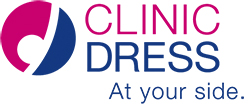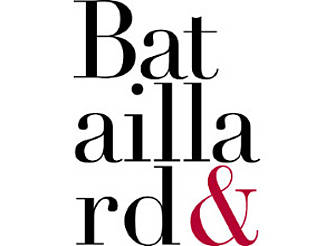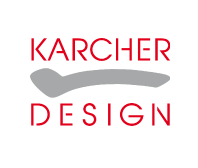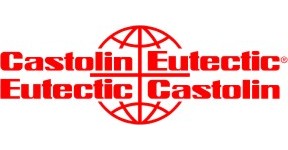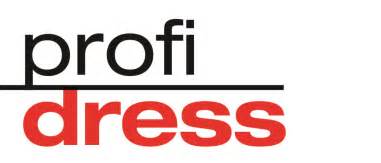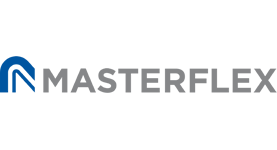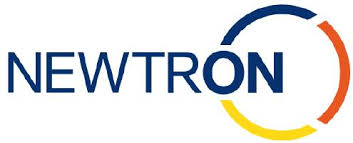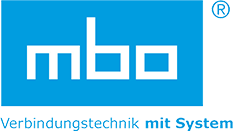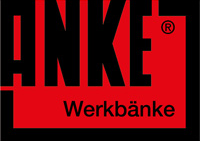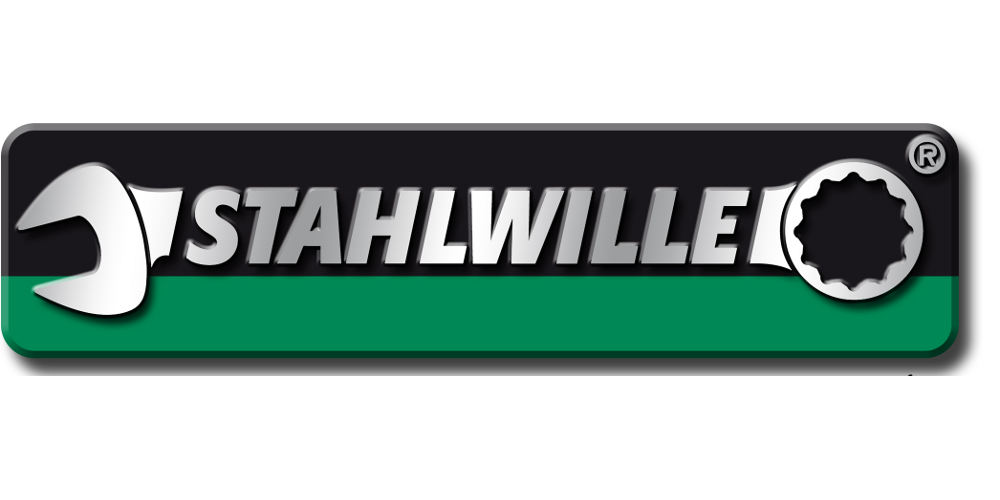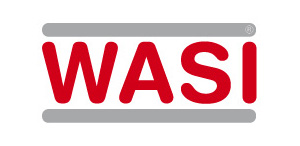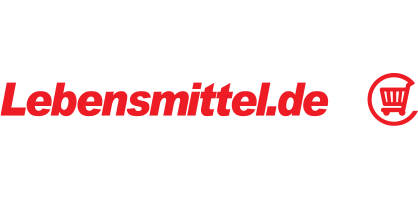Alterra CMS: the Product Experience Platform for Companies
What is a CMS?
A Content Management System (CMS) is a software application that can be used to create, edit and structure content. Usually, the output media are web pages. In addition to the content itself, also the templates for the layout of a web page are stored in the CMS. Content Management Systems should store content as media-neutral as possible and then combine it with the necessary layout depending on the output channel as, for instance, PC, tablet, smartphone or a print preview.
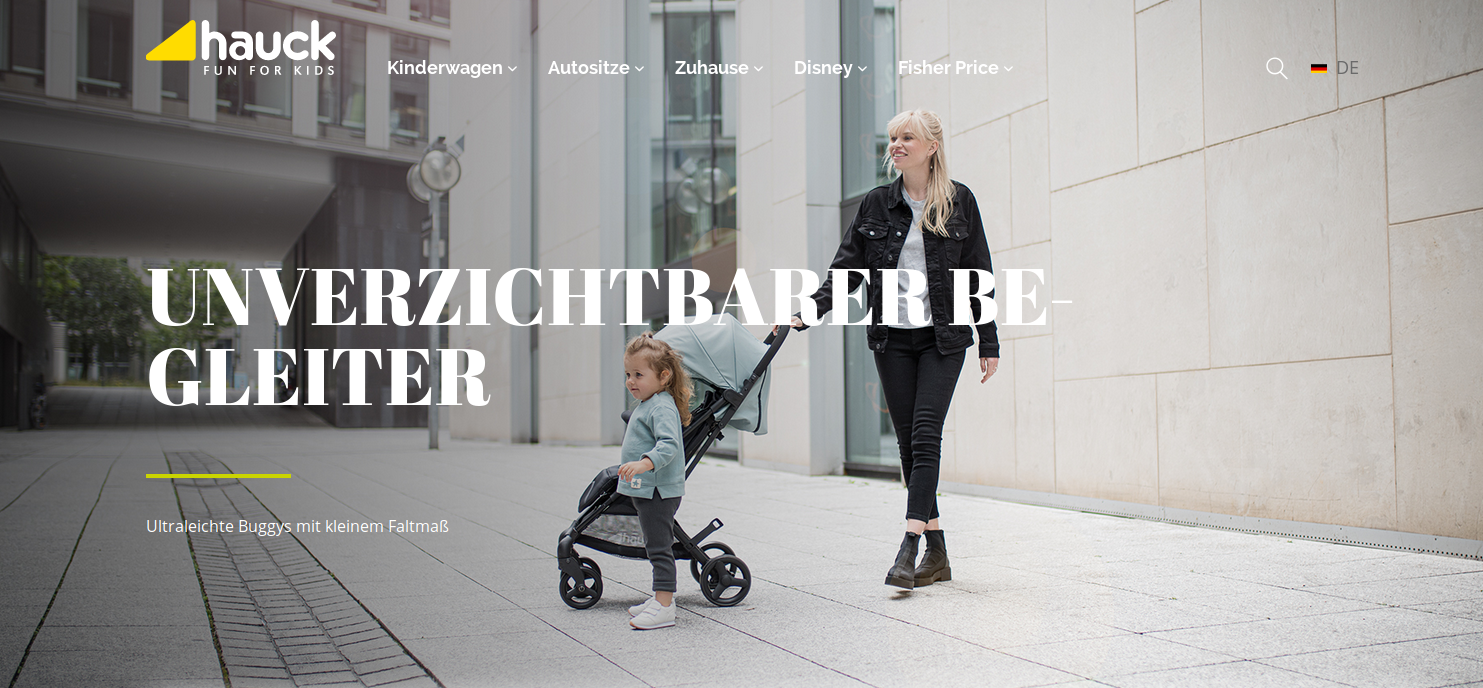
Web page from Alterra CMS
The functions of a Content Management System can be viewed from different perspectives. On the one hand, such a system addresses editors and/or bloggers (editor system), who must create and administer content. From an editorial point of view, a CMS should provide the following features:
- Editorial media-neutral text and image capture (if required: audio & video)
- Import and export of editorial content
- Structuring and linking of texts
- Translation of texts
- Versioning of content
- Interaction between users (editors)
- Saving metadata and keywords
- Multiple use of content through transclusion
- Selection of possible layouts for the output of content
- Review and release of content (quality management)
- Output of web pages
- Output of web content depending on user profile
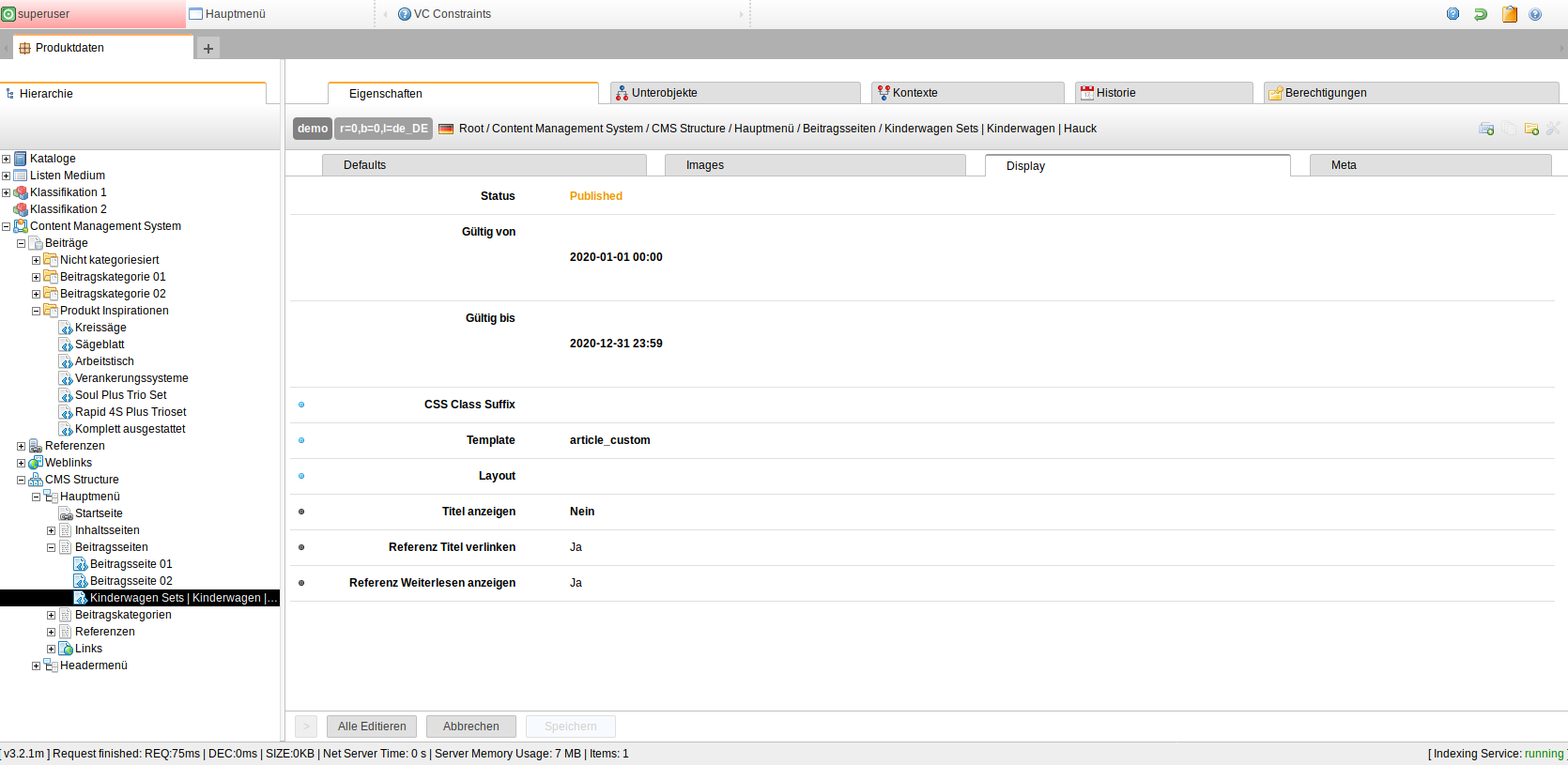
The backend of Alterra::CMS: time-controlled publication of editorial content
On the other hand, a CMS is a system that has to meet technical requirements. It is used by webmasters to combine editorial content with layouts and to ensure the performant output of the pages. From a technical point of view, this results in the following features:
- Storage and indexing of content in databases
- Storage of templates and stylesheets
- Connecting templates and stylesheets with content (Model View Controller)
- Processing of form data
- Functions for personalizing content (user profiles)
- Creation of viewports (output for different devices, responsive layout)
- Authorization system for editors
- Authorization system for consumers (profiles)
- Creation and caching of links and sitemaps
- Caching of web pages
- Creating and managing user sessions
- Scalability of access, load distribution
- Extensibility / upgradability of own functions through plugins
- Functions for SEO (Search Engine Optimization)
What makes Alterra CMS so interesting for companies?
Besides the above-mentioned standard features of a WebCMS Alterra offers some extra features that make it particularly interesting for companies. Alterra CMS uniquely supports companies in their Product Experience Management. Any information about the product can be combined and output in the web via Alterra CMS. The Alterra product family is a real one-stop shop for: product data management, customer master data, image and video data management, product configuration, web shop and web content management. Alterra CMS references PIM, DAM and PCM – without having to copy, import or build interfaces for data exchange. This makes Alterra CMS a unique transclusion engine!
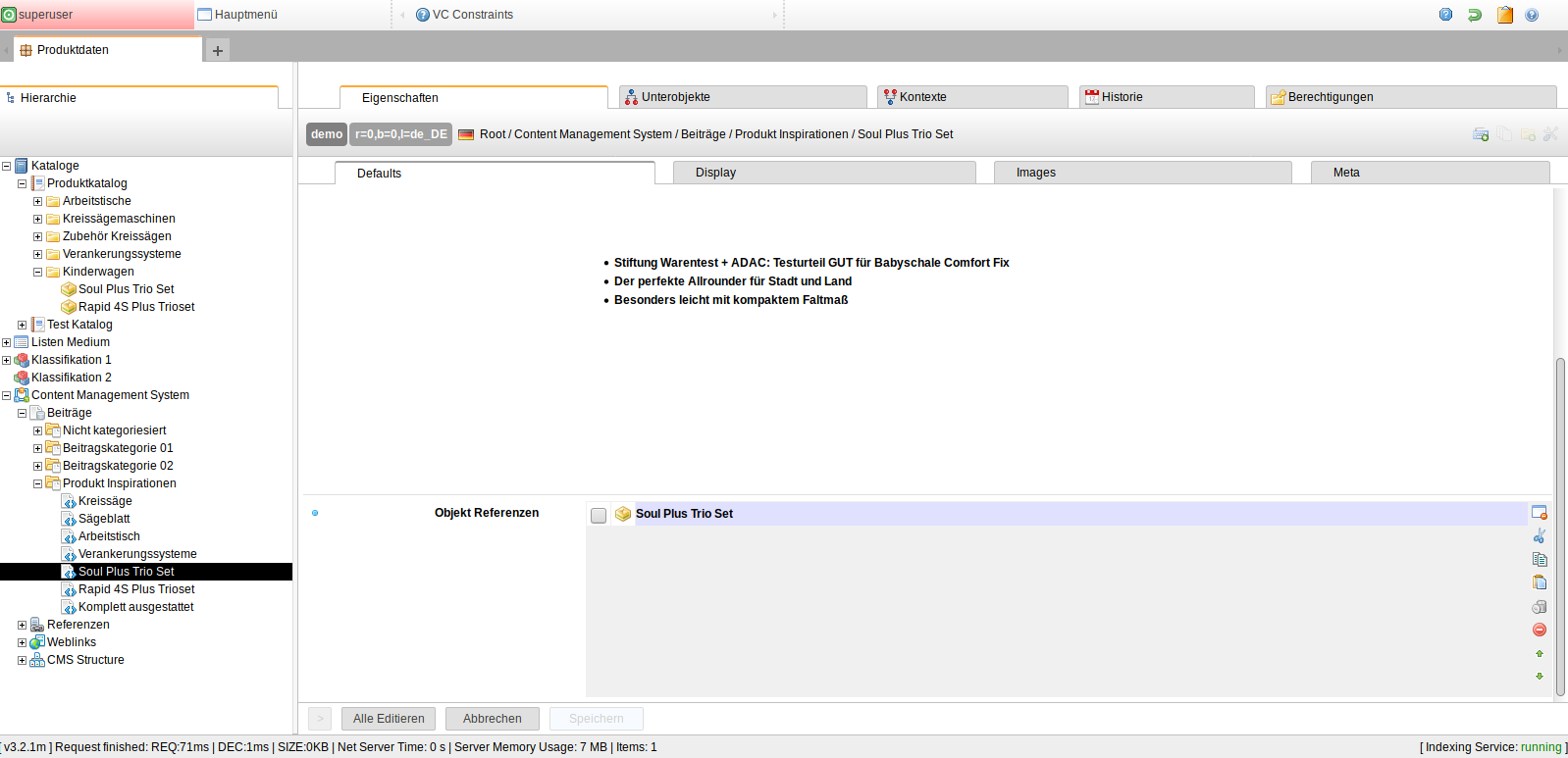
Alterra CMS: Transclusion by referencing product data from PIM in an editorial article
Alterra has the best possible software module for each function block:
- Alterra::PIM: one of the leading Product Information Management Systems
- Alterra::DAM: an enterprise-class Digital Asset Management System
- Alterra::MDM: CRM master data with customer data
- Alterra::PCM: the leading system for web-based Product Configuration
- Alterra::WebShop: a robust Web Shop System based on the leading OpenSource framework CakePHP
- Alterra::Web2Print: a sophisticated system for the automatic creation of high-quality Product Data Sheets and catalogs.
Alterra CMS is the platform for Product Experience Management
With Alterra::CMS, articles with product data can be elegantly aligned to user profiles and user groups. Create Product Journeys for your products that are precisely tailored to your target group. With the Storytelling function you inspire your customers to choose a product and guide them exactly to the right product variant for their requirements.
Alterra CMS uses the data from the other modules of the Alterra Business Software family in addition to its own editorial content and merges them by transclusion. Here is a diagram that explains a transclusion using a simple example:
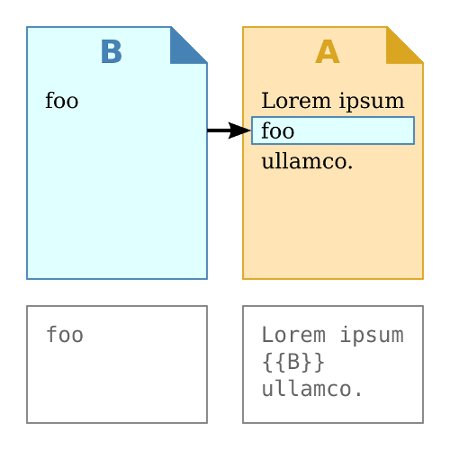
Diagram: What is transclusion? Source Wikipedia
- Customer master data from Alterra::MDM can control customer user profiles on websites.
- Transclusion of product data from Alterra::PIM.
- Transclusion of eCommerce functions from Alterra::WebShop.
- Transclusion of product configurators.
- Image data from Alterra::DAM can be used in both Alterra::PIM and Alterra CMS.
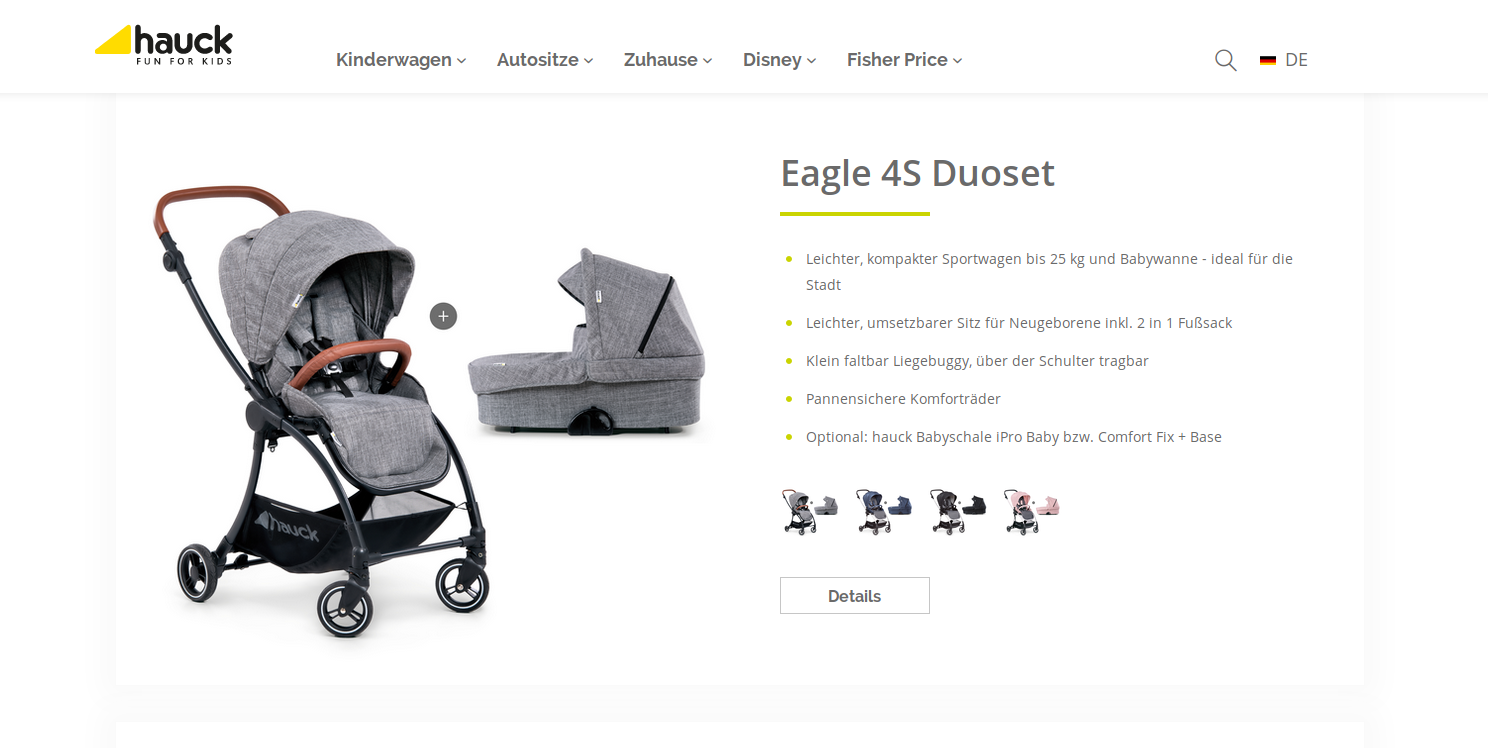
Product data from Alterra PIM embedded by reference in a website created vis Alterra CMS
In addition, special features for product presentations can be used both in the shop and on the website; possible applications include, for instance:
- Product comparisons
- Requests for quotation
- Product configurations
Features such as Multi-Site, i.e. many mandates and many websites from one system, and the almost unlimited scalability of websites and their performance through clustering and load balancing ensure your business success.
Alterra:CMS is based on intelligent structures. Data is subject to a clear separation of content and form. Data is clearly divided into editorial content, references to master data, website structures and website layouts (HTML templates and CSS). With CakePHP, the system uses the benefits of one of the leading frameworks for the development of web applications:
- CakePHP is a robust, scalable application framework (similar to Ruby on Rails).
- CakePHP works according to the “Model View Controller” principle.
- CakePHP internalizes the principles: “Don’t repeat yourself” (DRY) and “Convention before Configuration”.
Conclusion: Alterra CMS is the “Swiss Army knife” for web portals.
For companies whose sales depend on the timeliness and quality of their product data, opt for the unique new possibilities that result from the combination of the various Alterra Suite modules. Alterra CMS is the final building block for the editorial preparation and integration of information. It convinces not least because of its planning reliability, calculable project costs, and short implementation times.
We will be happy to answer all your questions about Alterra CMS
Customers
Contact
Sepia GmbH & Co. KG
Ernst-Gnoss-Strasse 22
D-40219 Düsseldorf - Germany
Phone: +49 211 51 419 75
Phone alternative: +49 211 74 958 712 0
E-Mail: info@sepia.de
Looking for consultation or a web demo?
Get it here.

